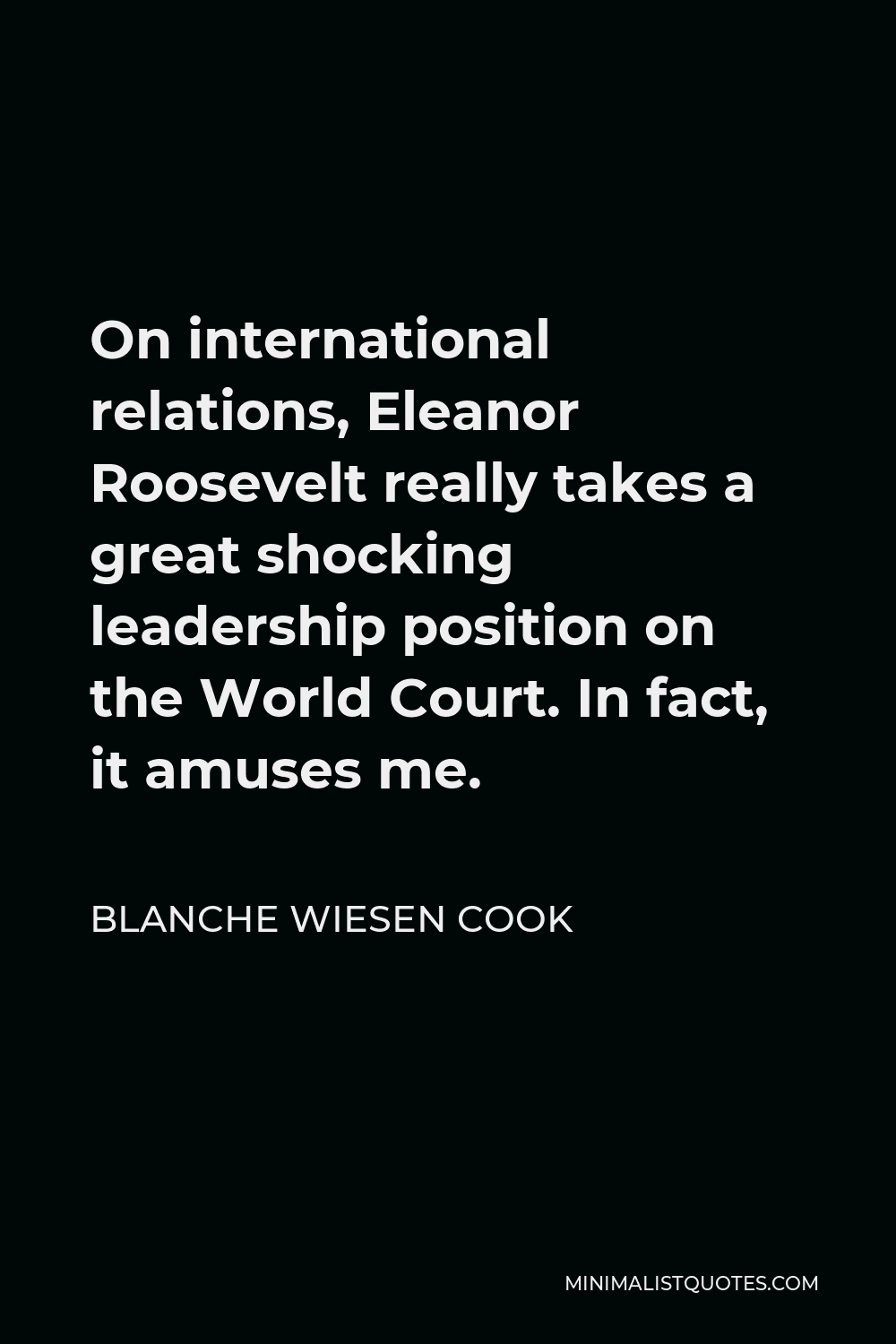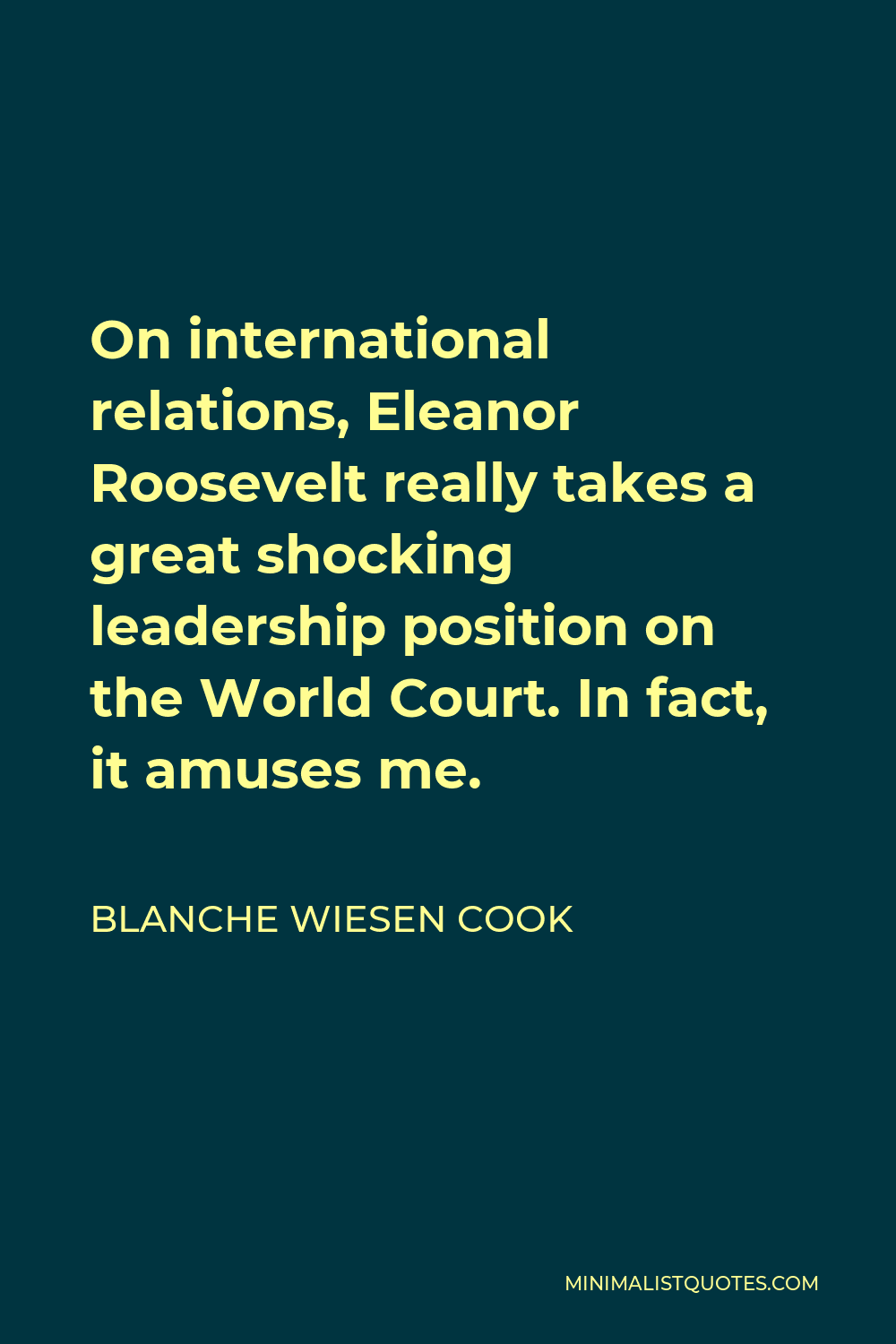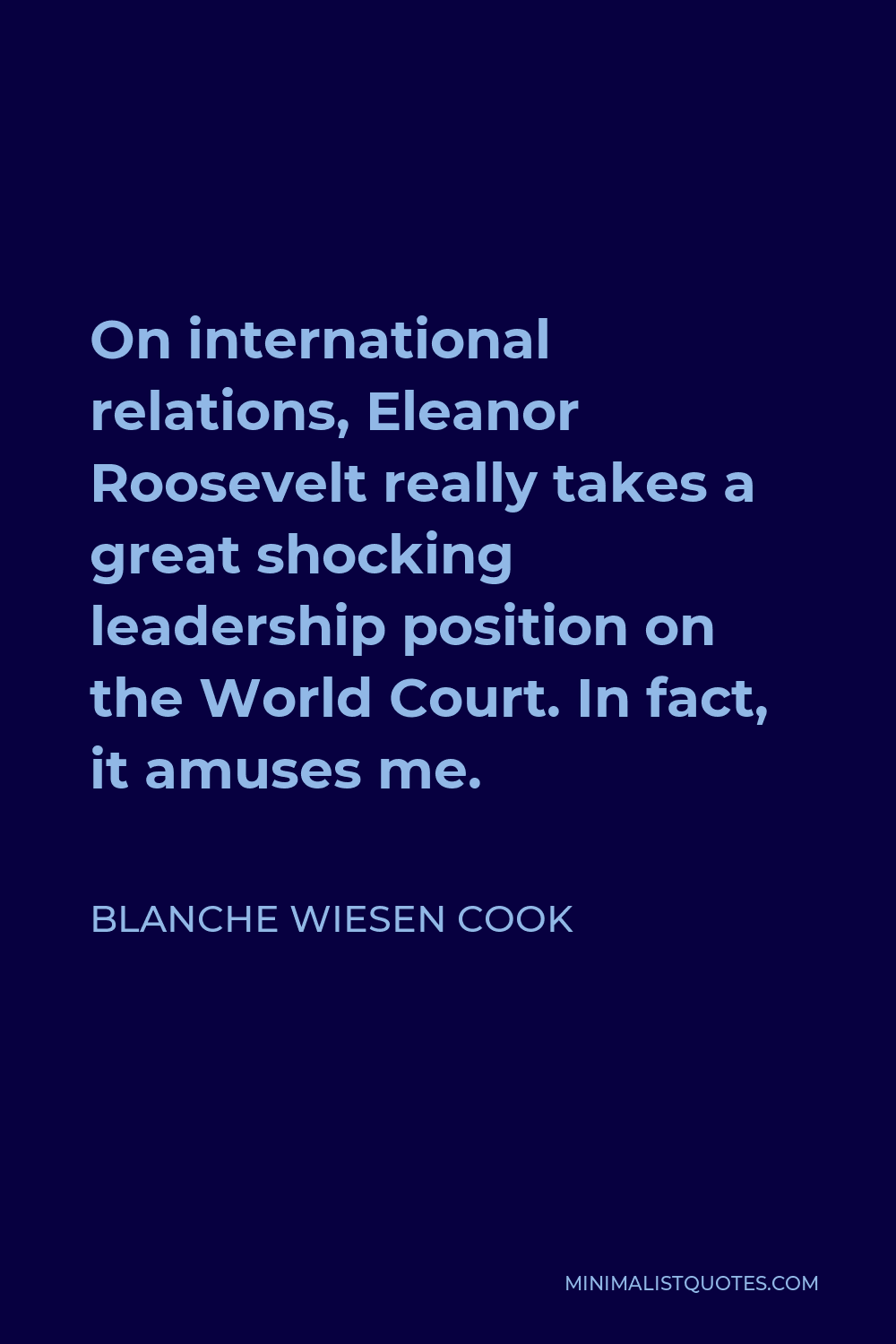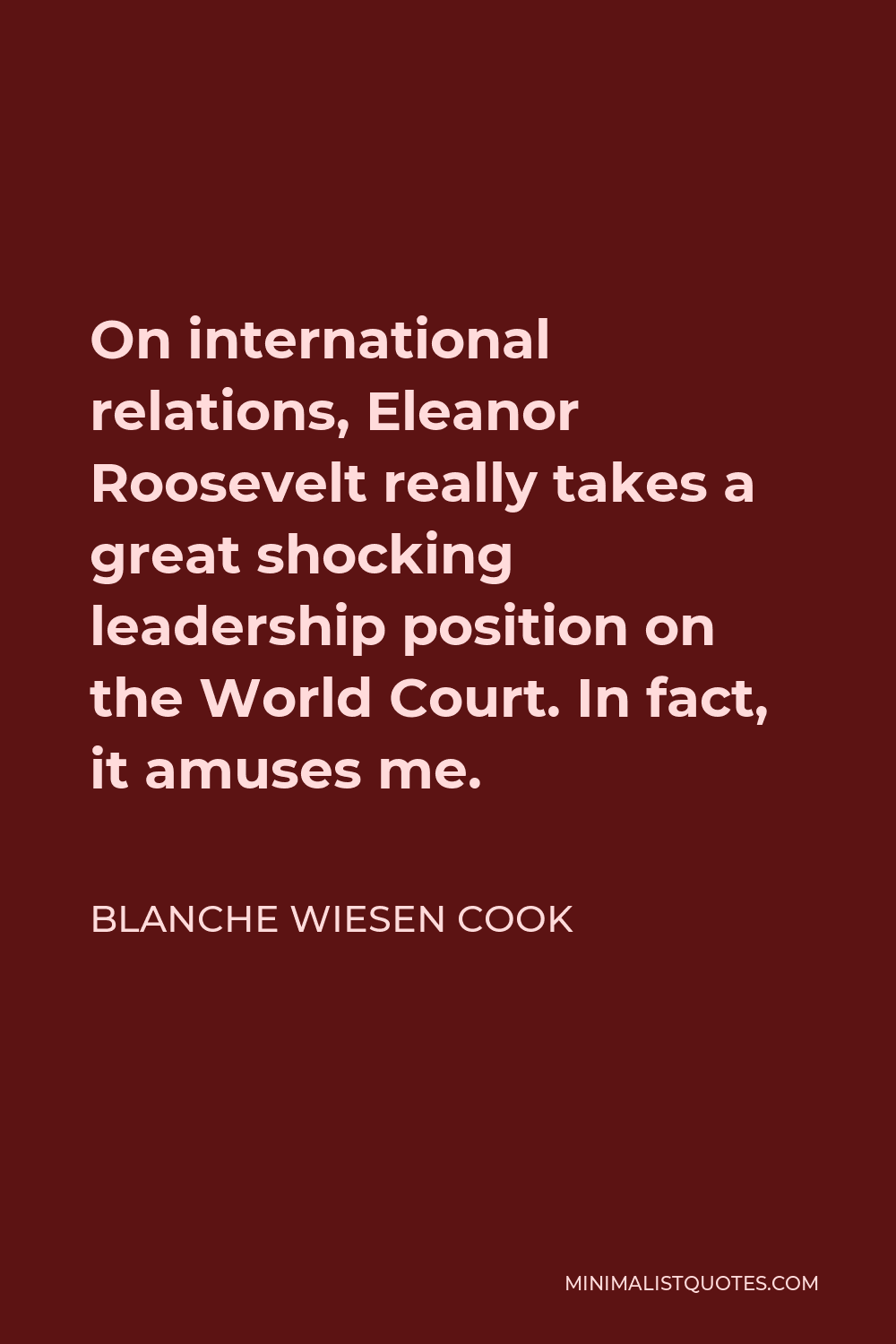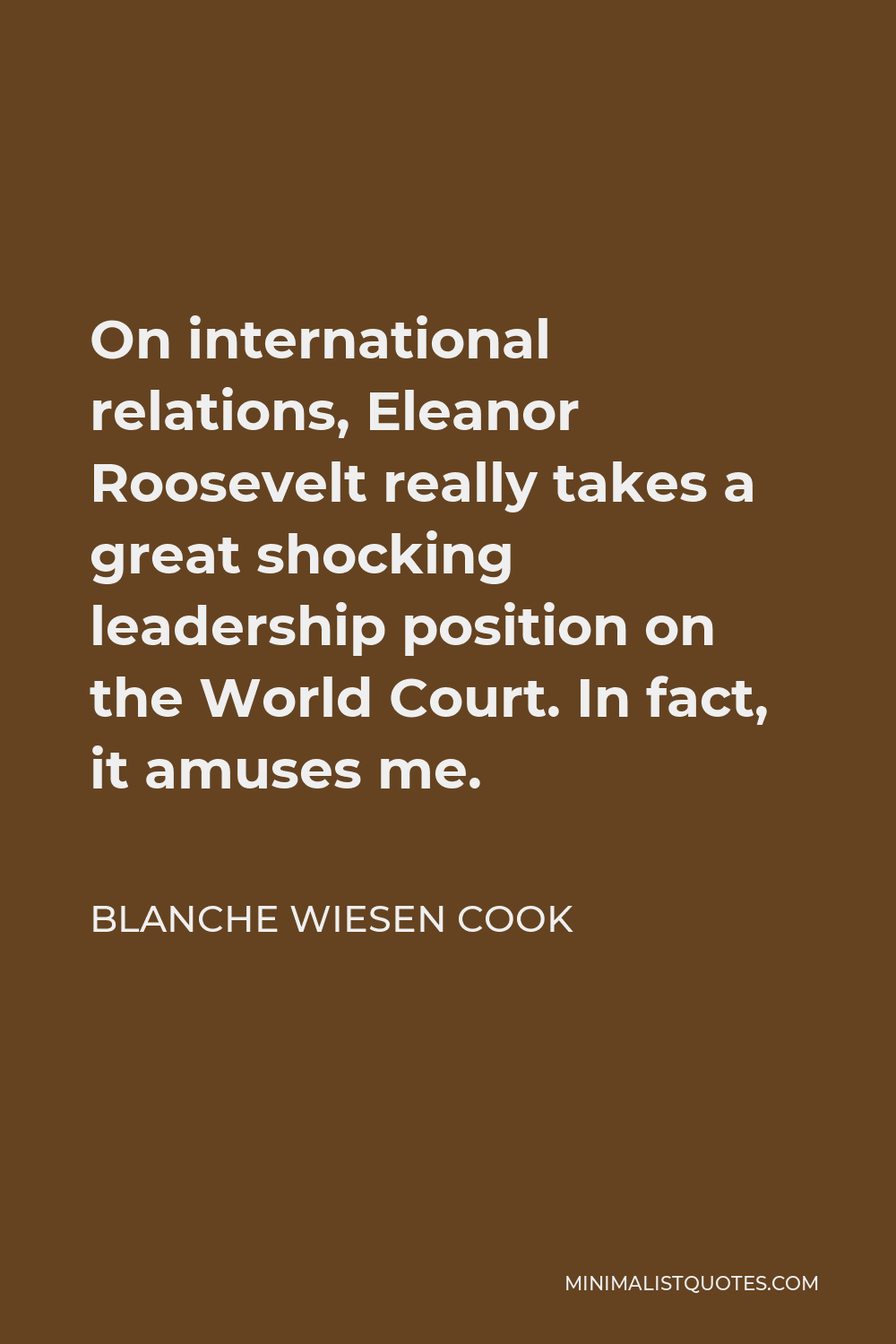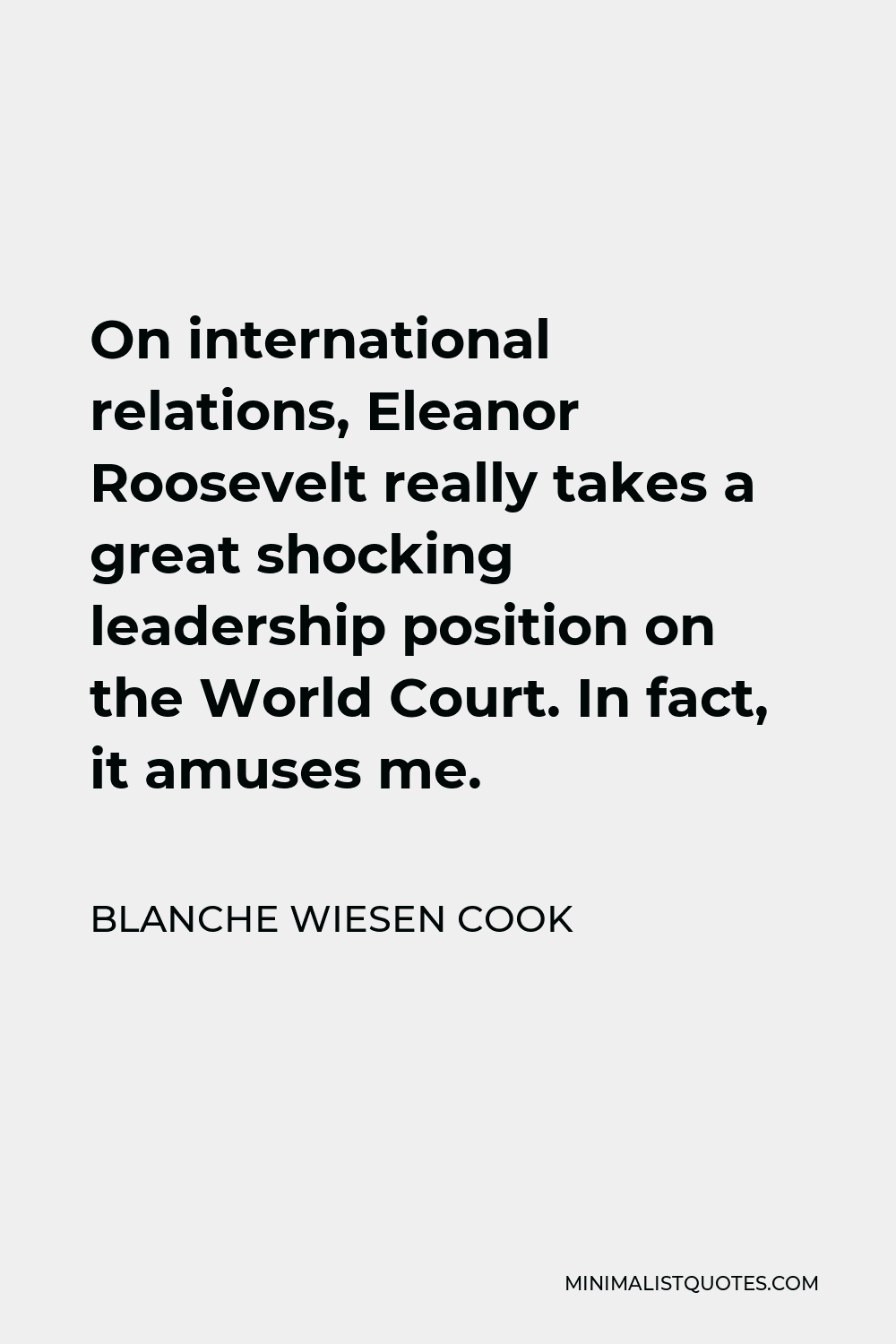And Eleanor Roosevelt’s really the dynamo and the spearhead of that effort.
BLANCHE WIESEN COOKOn international relations, Eleanor Roosevelt really takes a great shocking leadership position on the World Court. In fact, it amuses me.
More Blanche Wiesen Cook Quotes
-





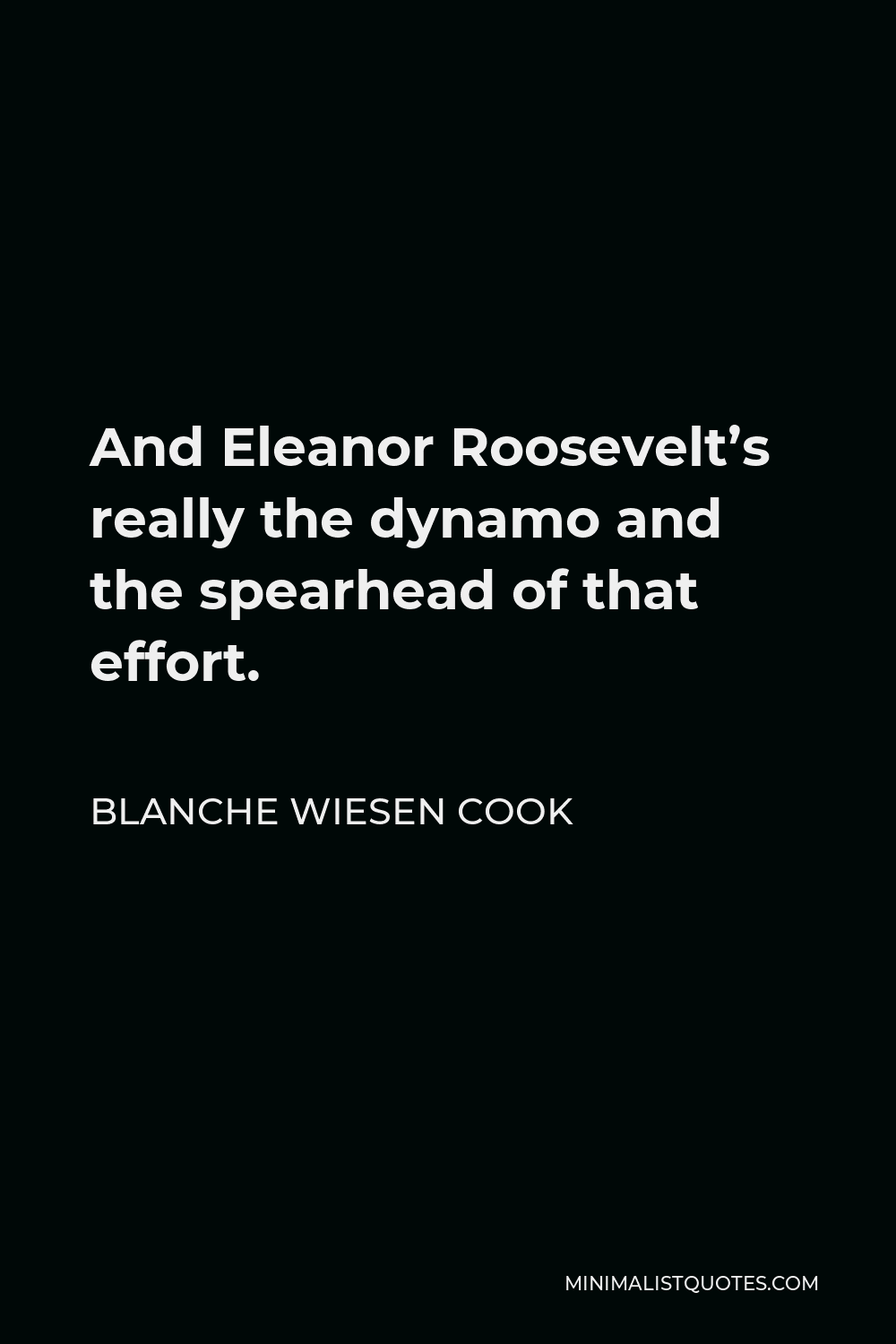
-






Eleanor Roosevelt doesn’t ever do anything that is going to hurt her husband. She tries things out on him. She gets permission to do things.
BLANCHE WIESEN COOK -





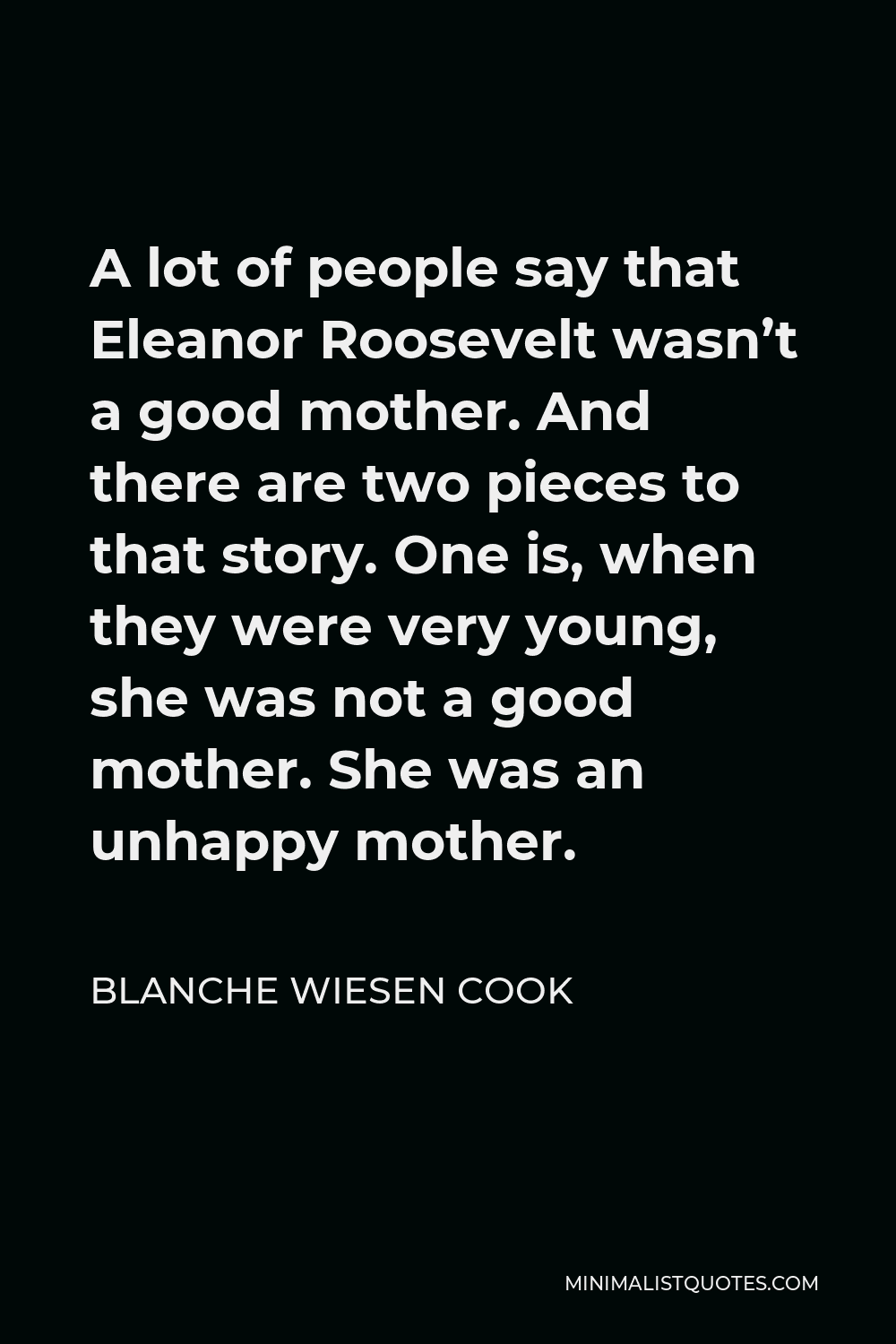
A lot of people say that Eleanor Roosevelt wasn’t a good mother. And there are two pieces to that story. One is, when they were very young, she was not a good mother. She was an unhappy mother.
BLANCHE WIESEN COOK -





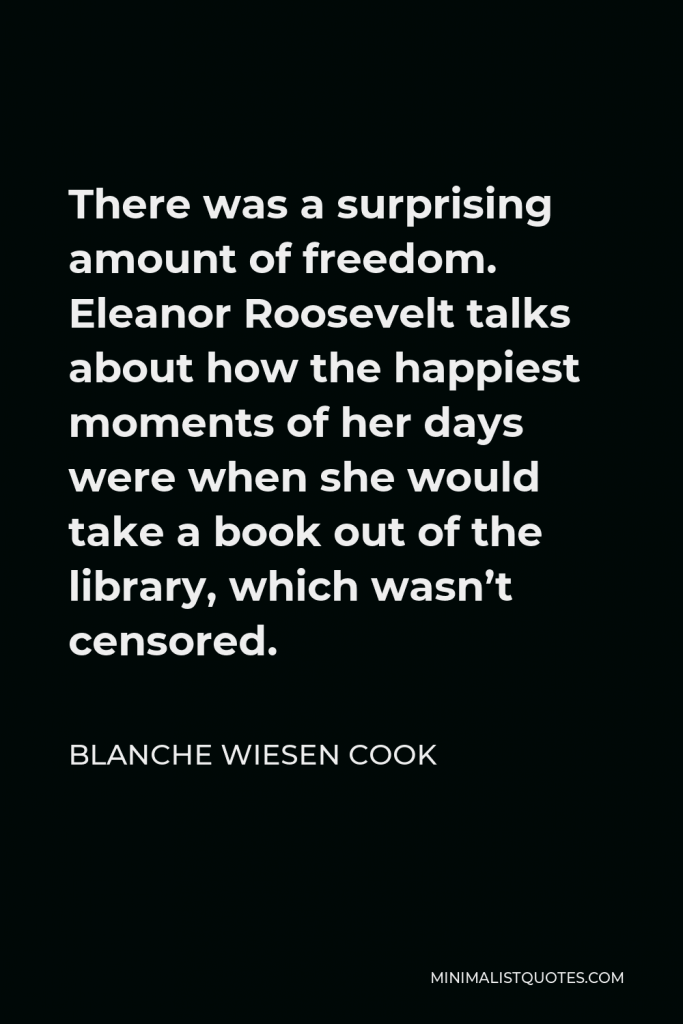

There was a surprising amount of freedom. Eleanor Roosevelt talks about how the happiest moments of her days were when she would take a book out of the library, which wasn’t censored.
BLANCHE WIESEN COOK -





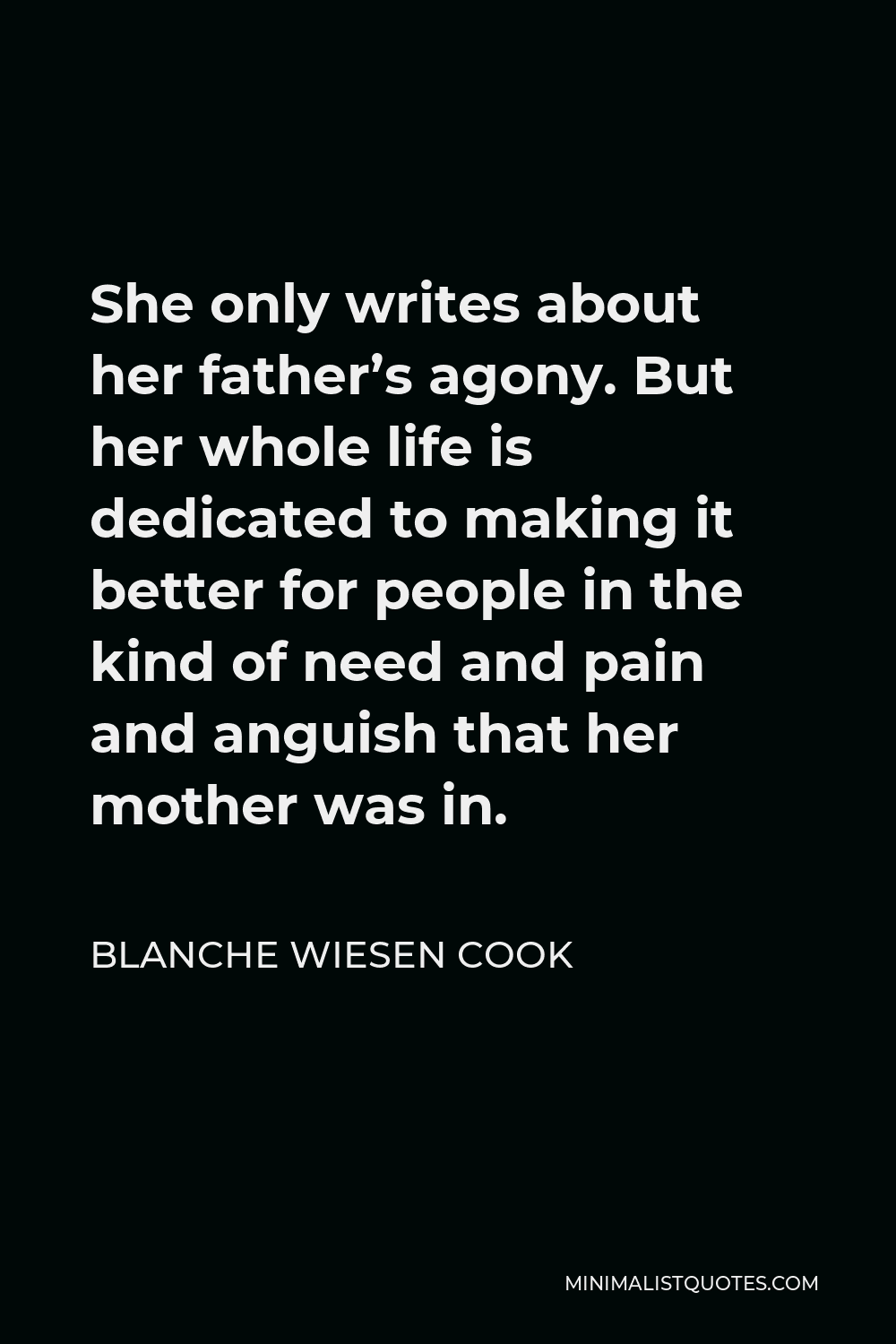
She only writes about her father’s agony. But her whole life is dedicated to making it better for people in the kind of need and pain and anguish that her mother was in.
BLANCHE WIESEN COOK -





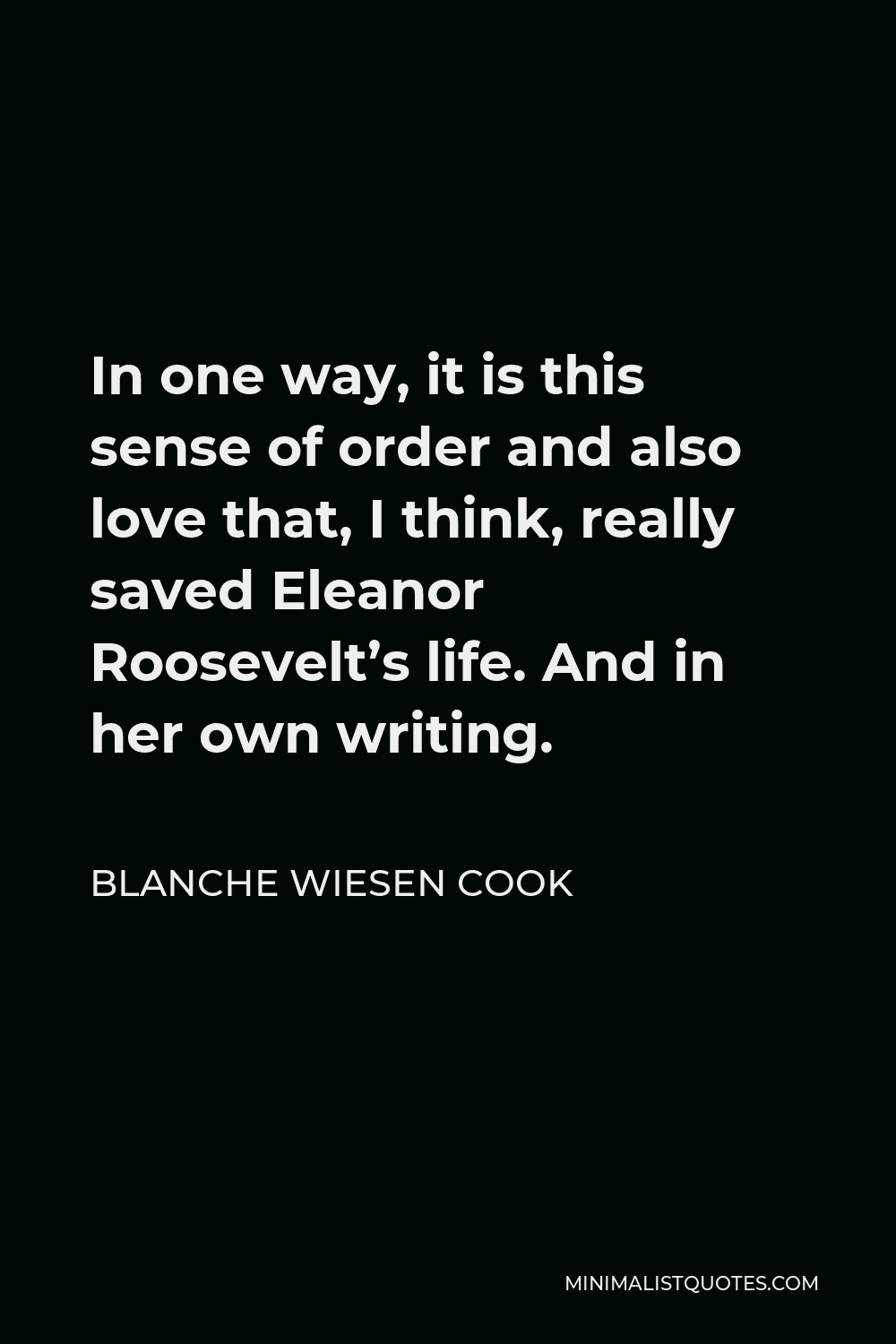
In one way, it is this sense of order and also love that, I think, really saved Eleanor Roosevelt’s life. And in her own writing.
BLANCHE WIESEN COOK -





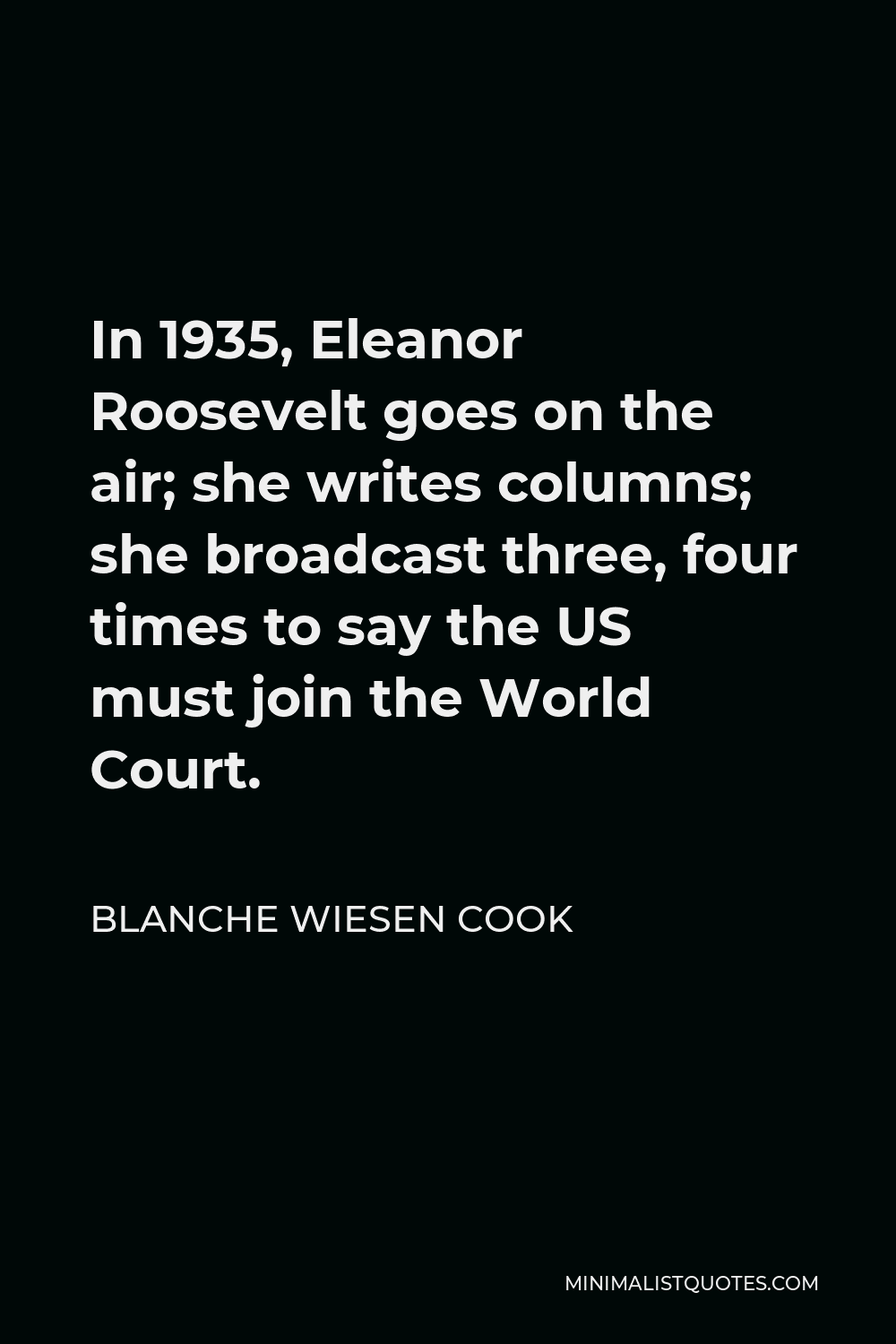
In 1935, Eleanor Roosevelt goes on the air; she writes columns; she broadcast three, four times to say the US must join the World Court.
BLANCHE WIESEN COOK -





![Blanche Wiesen Cook Quote - And in her [Eleanor Roosevelt] letters, she writes the most, you know, fanciful letters: when we are together, and when we are reunited, and you know,](https://minimalistquotes.com/images/and-in-her-eleanor-roosevelt-letters-she-writes-th.jpg)
And in her [Eleanor Roosevelt] letters, she writes the most, you know, fanciful letters: when we are together, and when we are reunited, and you know,
BLANCHE WIESEN COOK -





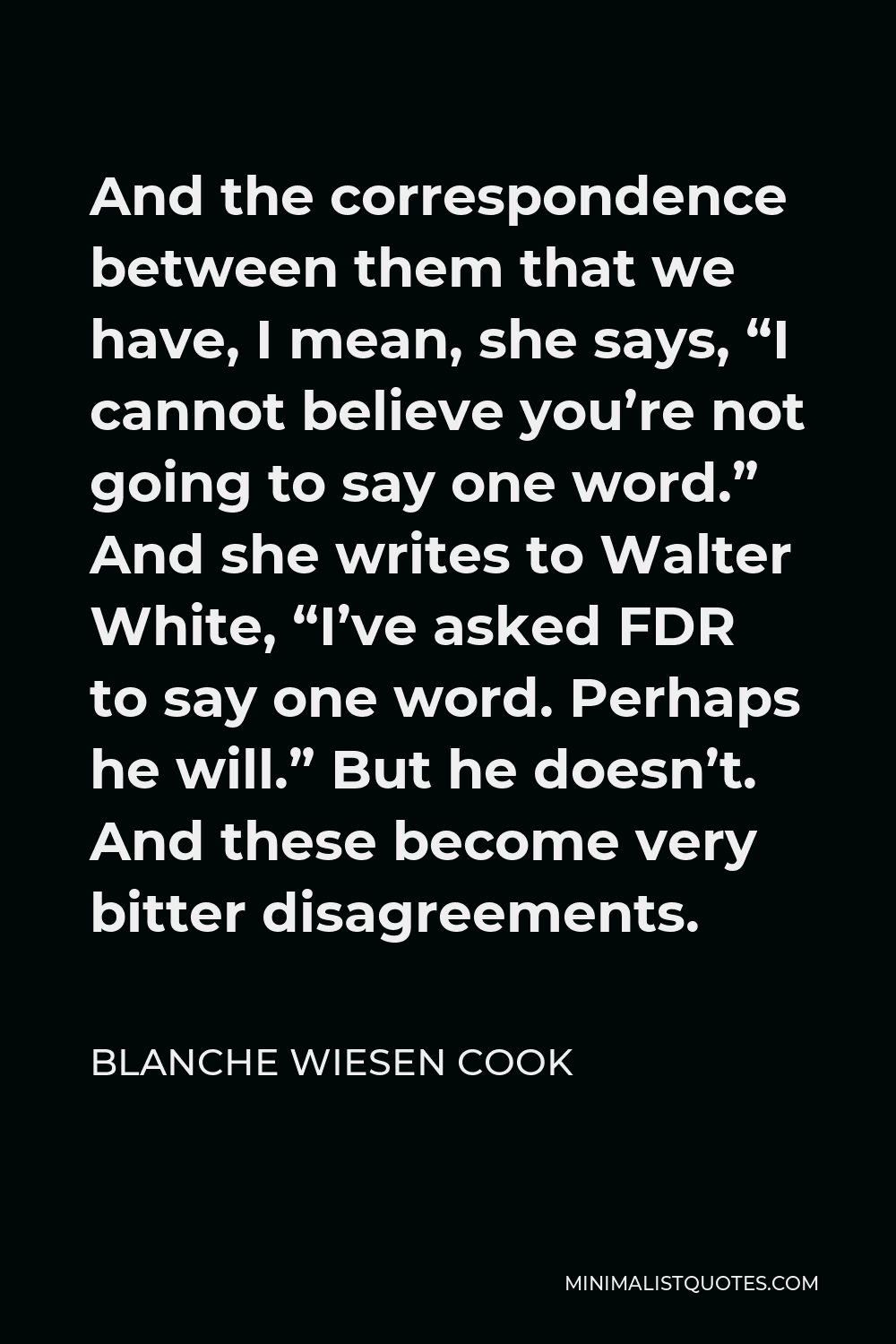
And the correspondence between them that we have, I mean, she says, “I cannot believe you’re not going to say one word.” And she writes to Walter White, “I’ve asked FDR to say one word. Perhaps he will.” But he doesn’t. And these become very bitter disagreements.
BLANCHE WIESEN COOK -





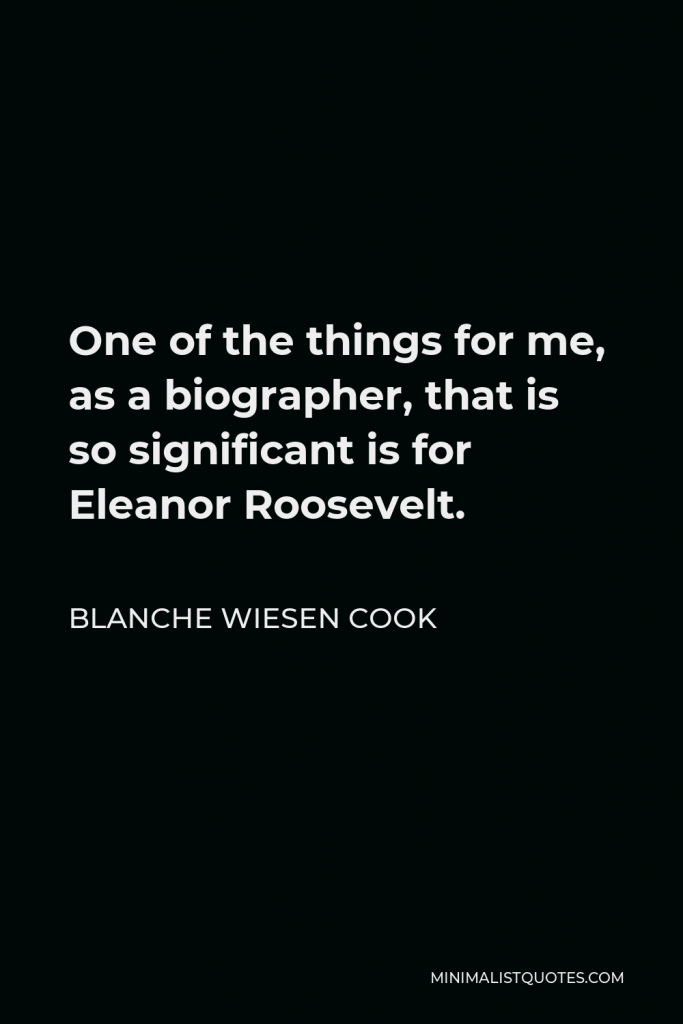

One of the things for me, as a biographer, that is so significant is for Eleanor Roosevelt.
BLANCHE WIESEN COOK -





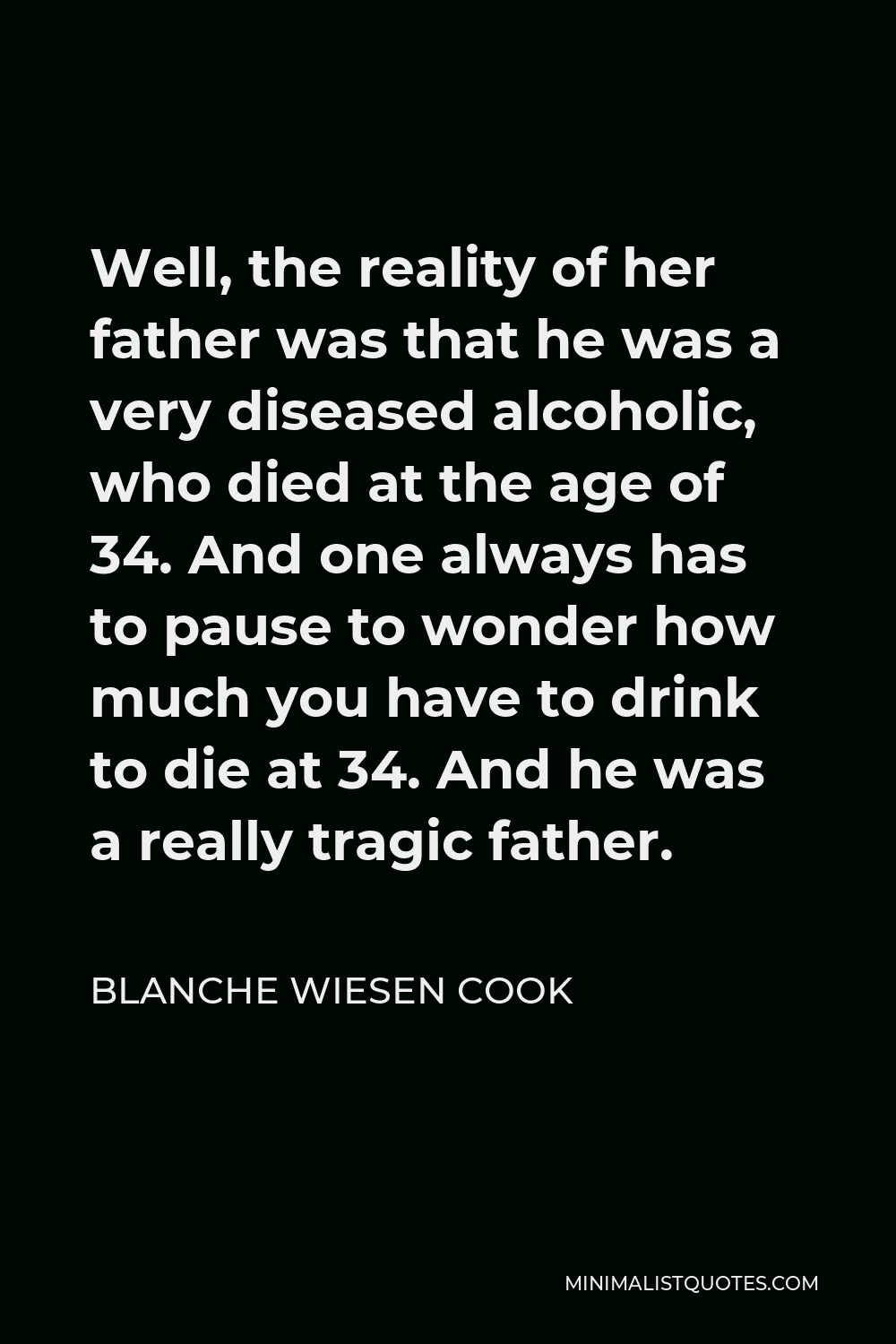
Well, the reality of her father was that he was a very diseased alcoholic, who died at the age of 34. And one always has to pause to wonder how much you have to drink to die at 34. And he was a really tragic father.
BLANCHE WIESEN COOK -







Also, she spoke perfect French. She grew up speaking French. She’s now at a french-speaking school where, you know, girls are coming from all over the world. Not everybody speaks French.
BLANCHE WIESEN COOK -





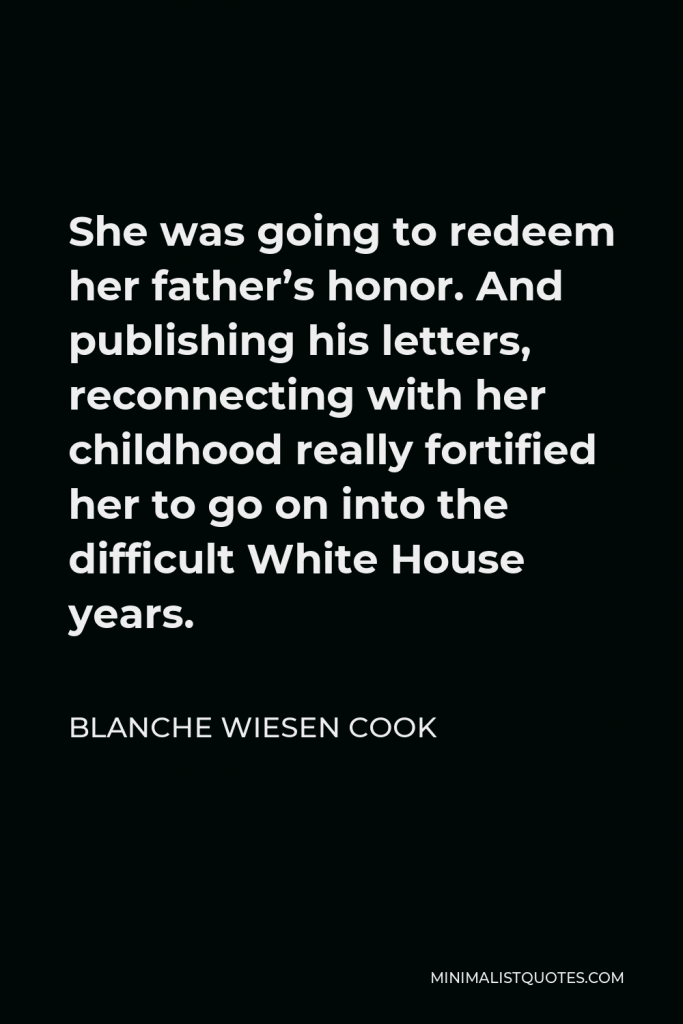

She was going to redeem her father’s honor. And publishing his letters, reconnecting with her childhood really fortified her to go on into the difficult White House years.
BLANCHE WIESEN COOK -





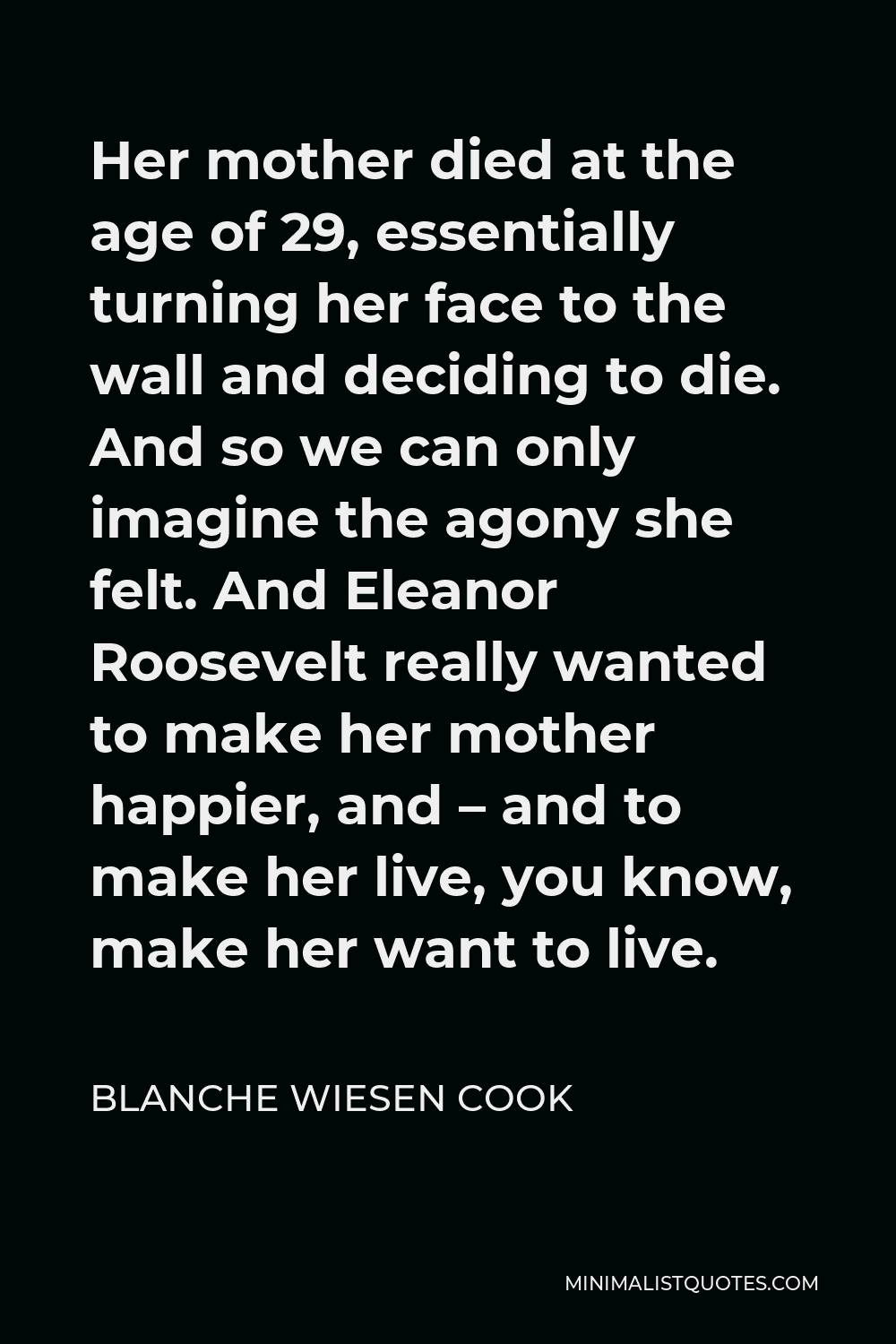
Her mother died at the age of 29, essentially turning her face to the wall and deciding to die. And so we can only imagine the agony she felt. And Eleanor Roosevelt really wanted to make her mother happier, and – and to make her live, you know, make her want to live.
BLANCHE WIESEN COOK -





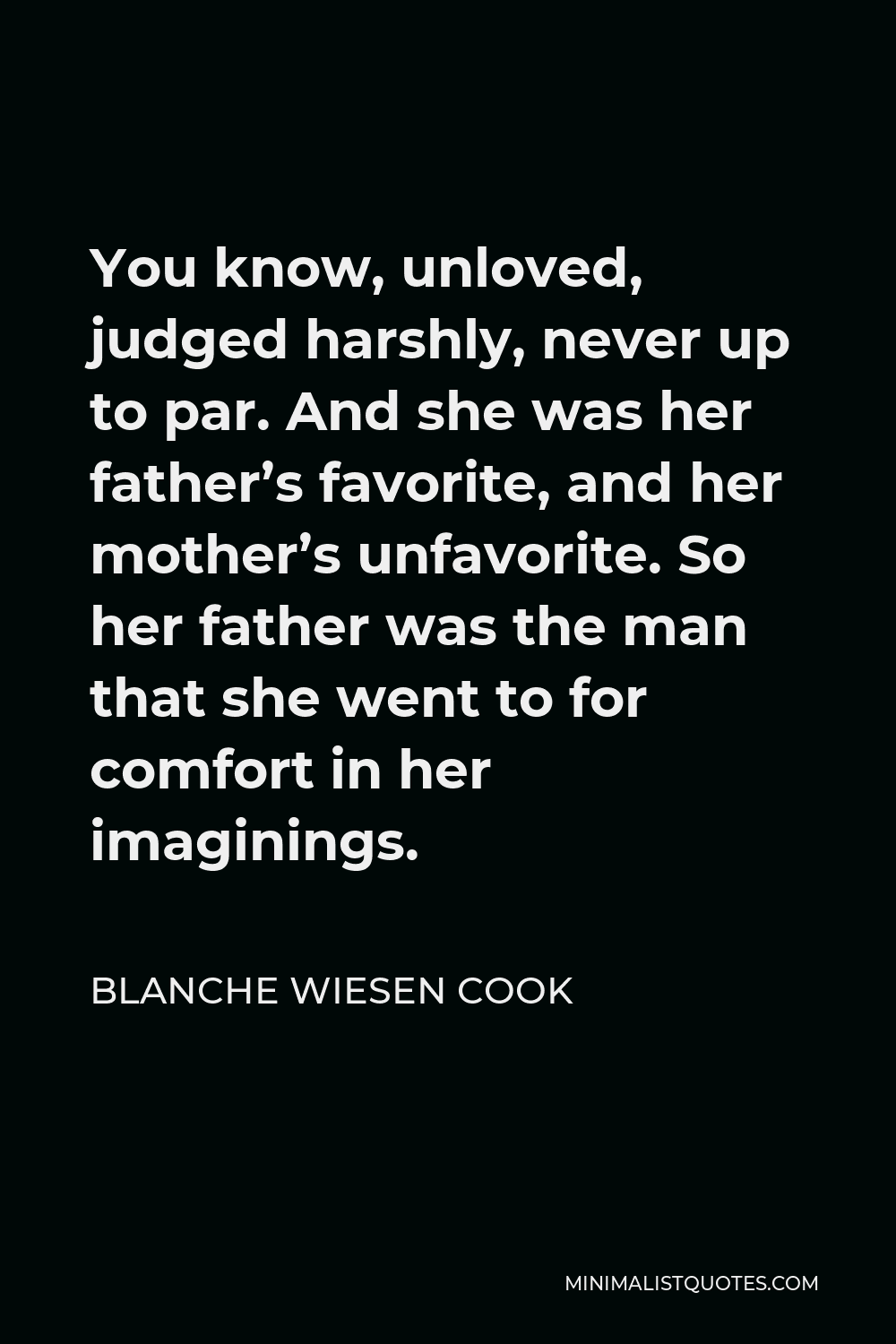
You know, unloved, judged harshly, never up to par. And she was her father’s favorite, and her mother’s unfavorite. So her father was the man that she went to for comfort in her imaginings.
BLANCHE WIESEN COOK -






I think FDR was very dashing and charming and debonair, and probably reminded her of her father. A great bon-vivant. He loved to party.
BLANCHE WIESEN COOK
